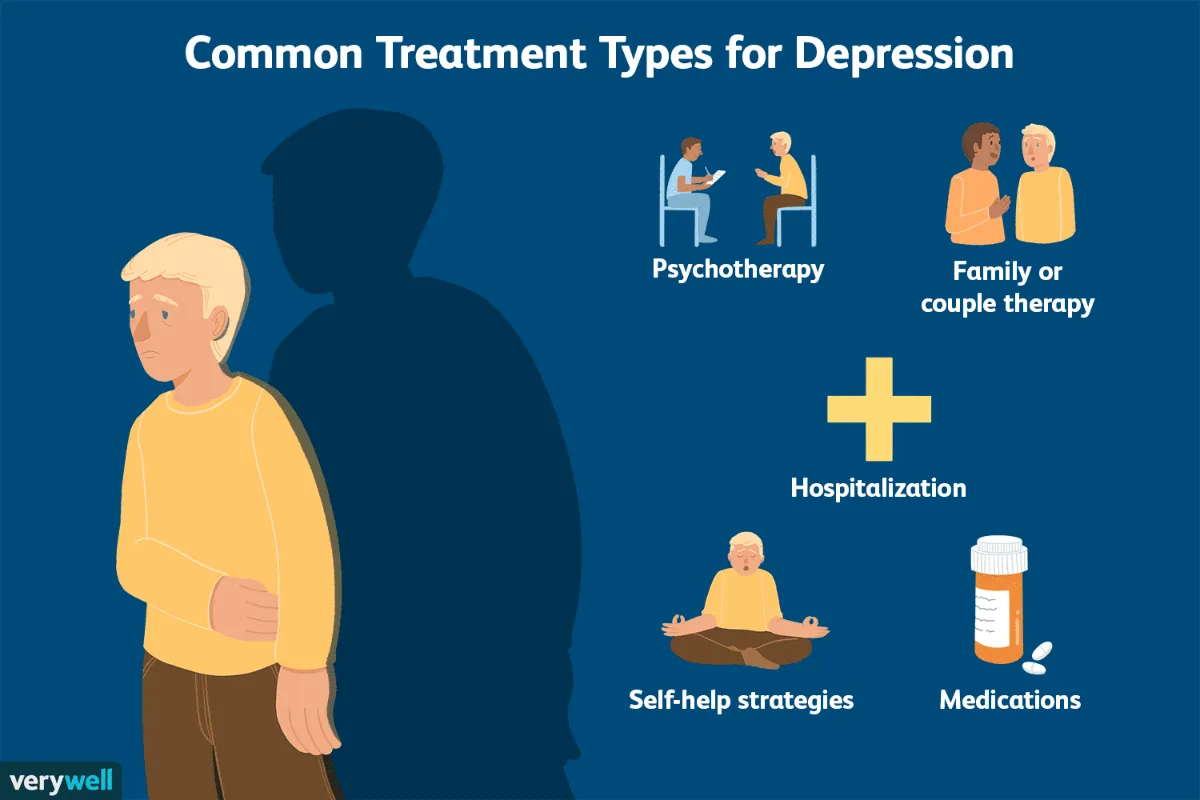While there’s no cure for depression, there are many treatments that can help ease symptoms and improve your quality of life. Even if your symptoms go away, depression can sometimes return. This article explains current treatments, alternative approaches, and tips to prevent depression from coming back.
Can Depression Come Back?
Depression often happens in episodes. Some people experience only one episode, while others have multiple episodes throughout their lives.
- About one-third of people with depression will have more than one episode.
- For those who’ve had two episodes, the chance of having more increases to 80%.
Treatment, self-care, and coping strategies can help reduce the risk of depression returning. Even if it does come back, these tools can make symptoms easier to manage.
Current Treatments for Depression
If you’re diagnosed with depression, your doctor or therapist may recommend one or more of the following treatments:
1. Therapy
Therapy is often the first step in treating depression. Common types include:
- Cognitive Behavioral Therapy (CBT): Helps you identify and change negative thought patterns.
- Interpersonal Therapy (IPT): Focuses on improving relationships and communication.
- Mindfulness-Based Cognitive Therapy (MBCT): Combines CBT with mindfulness techniques like meditation.
The best type of therapy depends on your symptoms and how depression affects your life.
2. Medication
Medication can help manage symptoms, especially when combined with therapy. Common types of antidepressants include:
- SSRIs (e.g., Prozac, Zoloft).
- SNRIs (e.g., Cymbalta, Effexor).
- Tricyclic antidepressants (for treatment-resistant depression).
- Atypical antidepressants (e.g., Wellbutrin).
Never stop taking medication without talking to your doctor first.
3. Brain Stimulation
For treatment-resistant depression, doctors may recommend:
- Electroconvulsive Therapy (ECT): Uses electrical impulses to change brain activity.
- Transcranial Magnetic Stimulation (TMS): Uses magnetic pulses to stimulate nerves in the brain.
- Vagus Nerve Stimulation: Involves a device implanted in your chest to stimulate the vagus nerve.
Complementary and Alternative Treatments
These approaches can be used alongside traditional treatments:
- Acupuncture: May help relieve symptoms, especially when combined with antidepressants.
- St. John’s Wort: An herbal remedy that may help with mild to moderate depression.
- Supplements: Vitamin D, saffron, and magnesium may improve symptoms.
- Exercise: Just 2.5 hours of physical activity per week can ease depression and anxiety.
- Music Therapy: Listening to or creating music can temporarily improve mood.
- Relaxation Techniques: Yoga, meditation, and guided imagery may help reduce symptoms.
While these methods can be helpful, they’re not usually recommended as the main treatment for depression.
Emerging Treatments
Researchers are exploring new ways to treat depression, especially for people who don’t respond to other treatments.
1. Stanford Accelerated Intelligent Neuromodulation Therapy (SAINT)
- A faster form of TMS that involves multiple sessions per day for 1 to 5 days.
- Early studies show promising results, with most participants experiencing significant improvement.
2. Ketamine
- Works quickly to relieve severe depression and suicidal thoughts.
- Given as an IV infusion or nasal spray (Spravato).
- Side effects may include nausea, dizziness, and changes in perception.
3. Psilocybin
- The active ingredient in “magic mushrooms.”
- Early studies show it can provide quick relief for depression when combined with therapy.
- Not yet FDA-approved, but available in some treatment centers.
Tips to Prevent Depression from Returning
While there’s no guaranteed way to prevent depression, these strategies can help:
- Stay Connected: Maintain relationships with loved ones for emotional support.
- Take Care of Your Physical Health: Exercise regularly, eat a balanced diet, and limit alcohol.
- Get Quality Sleep: Aim for 7 to 9 hours of sleep each night.
- Make Time for Enjoyable Activities: Do things you love, like reading, cooking, or spending time outdoors.
Key Takeaways
- Depression is treatable, but it may come back for some people.
- Therapy, medication, and brain stimulation are the most common treatments.
- Complementary approaches like exercise and relaxation can also help.
- Emerging treatments like ketamine and psilocybin show promise for severe depression.
- Self-care and staying connected can reduce the risk of depression returning.
If you’re struggling with depression, talk to a mental health professional about the best treatment plan for you. With the right support, you can manage your symptoms and improve your quality of life.

